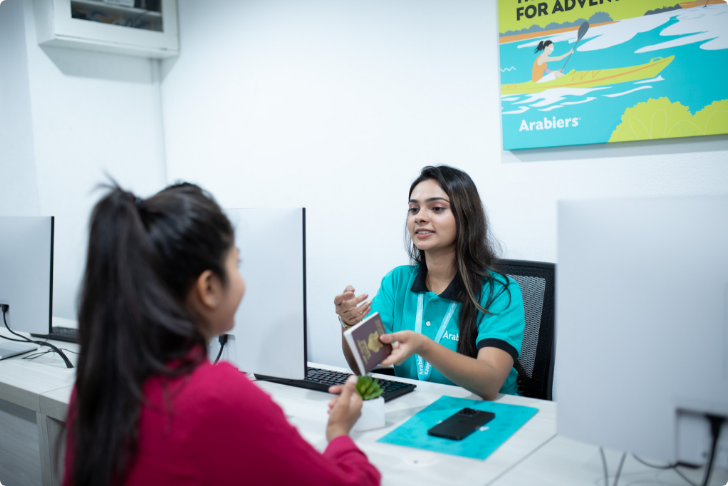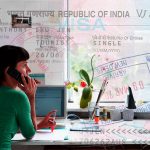Introduction to the Indian Tourist Visa
If you’re dreaming of a trip to the vibrant, culturally rich country of India, understanding the ins and outs of the Indian tourist visa is essential. Whether you’re planning to explore the historical wonders of Delhi, the tranquil backwaters of Kerala, or the bustling streets of Mumbai, a tourist visa is your gateway to an unforgettable experience in India. TOURIST VISA FOR INDIA
What is a Tourist Visa?
A tourist visa is a type of visa that allows individuals to visit a foreign country for leisure purposes. It is typically short-term and is intended for those who wish to explore, travel, or enjoy the sights of the destination without engaging in any form of employment or long-term stay. For India, this visa permits travelers to immerse themselves in the country’s rich heritage, diverse culture, and stunning landscapes.
Why Visit India?
India is a land of contrasts and a tapestry of experiences. From the majestic Himalayas to the serene beaches of Goa, India offers something for every traveler. Its rich history, diverse culture, and vibrant festivals make it an intriguing destination. Whether you’re a history buff, a spiritual seeker, or simply someone who loves to explore new places, India is bound to captivate your heart.
Eligibility Criteria for an Indian Tourist Visa
Before applying for an Indian tourist visa, it’s crucial to ensure you meet the eligibility criteria. This ensures a smoother application process and increases the likelihood of approval. BUSINESS VISA FOR INDIA
General Requirements
To qualify for an Indian tourist visa, you generally need to fulfill the following requirements:
- Passport Validity: Your passport must be valid for at least six months from the date of entry into India.
- Travel Itinerary: A detailed travel itinerary outlining your stay in India.
- Proof of Financial Means: Evidence that you have sufficient funds to cover your stay in India.
- Return Ticket: A return ticket or proof of onward travel.
- Visa Application Form: Completed and signed visa application form.
Specific Requirements by Nationality
Different countries may have specific requirements. For instance, while most countries have similar basic requirements, citizens from certain nations might need additional documents or face different processing times. Always check with the nearest Indian embassy or consulate for the most accurate information related to your nationality.
Types of Indian Tourist Visas
India offers several types of tourist visas, each suited to different needs and travel plans.
eVisa
The eVisa is an electronic visa that simplifies the application process. It can be obtained online and is often the quickest way to secure a tourist visa for India. The eVisa is available for a range of purposes, including tourism, business, and medical visits.
Regular Tourist Visa
A regular tourist visa is issued by the Indian embassy or consulate and may be required for longer stays or for those who do not qualify for an eVisa.
Single Entry
A single-entry visa allows you to enter India once during the visa’s validity period. It is ideal for short trips.
Multiple Entries
A multiple-entry visa allows you to enter and exit India multiple times within the visa validity period. This is useful if you plan to travel to neighboring countries and return to India during your trip.
How to Apply for an Indian Tourist Visa
Applying for an Indian tourist visa involves a few key steps, whether you’re opting for an eVisa or a regular visa.
Online Application Process
Applying online is straightforward and convenient.
Filling Out the Form
Visit the official Indian visa website and complete the online application form. Ensure all details are accurate and match your passport information.
Submitting Documents
Submit the required documents electronically. This usually includes a scanned copy of your passport, a passport-sized photograph, and your travel itinerary.
In-Person Application Process
For those who prefer or need to apply in person, follow these steps:
Where to Apply
Visit the nearest Indian embassy or consulate. Some locations also have visa application centers that handle the processing.
Required Documents
Prepare and submit the necessary documents, including your passport, visa application form, photographs, and any additional paperwork specific to your nationality.
Processing Time and Fees
Understanding the processing time and associated fees can help you plan your trip better.
Processing Time
The processing time for an Indian tourist visa can vary. eVisas are typically processed within 3 to 5 business days, while regular visas may take longer. It’s advisable to apply well in advance of your planned travel date.
Visa Fees
Visa fees vary based on the type of visa and your nationality. Check the latest fee structure on the official Indian visa website or consult the Indian embassy or consulate for accurate information.
Common Issues and Solutions
While applying for a visa, you may encounter some common issues. Here are solutions to help you navigate them.
Application Rejections
If your visa application is rejected, review the rejection letter for specific reasons. Common reasons include incomplete forms or discrepancies in information. Correct these issues and reapply if possible.
Troubleshooting
For any issues with your visa status or application process, contact the Indian embassy or consulate. They can provide guidance and assistance.
Tips for a Smooth Visa Experience
To ensure a hassle-free visa application process, consider the following tips:
Check Your Passport Validity
Make sure your passport is valid for at least six months beyond your planned stay in India. This is a common requirement for visa approval.
Double-Check Visa Details
Before submitting your application, review all details to avoid errors. Mistakes can lead to delays or rejections.
Conclusion
Navigating the process of obtaining a tourist visa for India may seem daunting, but with the right information and preparation, it can be a smooth experience. By understanding the requirements, application processes, and potential issues, you can focus on planning your exciting journey through one of the world’s most fascinating countries.
FAQs
How long is an Indian Tourist Visa valid?
An Indian tourist visa typically allows for stays of up to 90 days. The exact validity depends on the type of visa issued.
Can I extend my Tourist Visa?
In most cases, tourist visas cannot be extended. If you need to stay longer, you may need to apply for a new visa or consider other visa options.
Do I need a visa if I’m just transiting through India?
Yes, even if you are transiting through India, you need a transit visa unless you are exempt based on your nationality.
What happens if I overstay my visa?
Overstaying your visa can result in fines, deportation, or future visa restrictions. It’s essential to adhere to the visa validity dates.
Can I apply for an Indian Tourist Visa for a minor?
Yes, minors require their own visa to enter India. The application process is similar but may require additional documentation such as birth certificates and parental consent.


